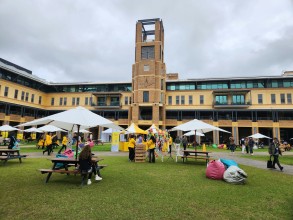News & Blogs
How to Apply for Permanent Residency After Studying in Australia
-1751862776.jpg)
Introduction – Why PR in Australia After Study Matters
Many students from around the world choose to study in Australia. It is a beautiful country with great universities, friendly people, and many job opportunities. But for most international students, coming to Australia is about more than just getting a simple degree and completing their journey there. Rather their journey has just begun as many students hope to live and work in Australia for a long time, even after finishing their studies. This is why getting Permanent Residency (PR) is so important.
Permanent Residency (PR) means you can live in Australia like a local. You can work full-time without worrying about any legal trouble, study more if you want, and even bring your family to live with. You will also get access to healthcare and other government services. Later, you may even become an Australian citizen if you meet all the rules. So, PR basically gives you a safe and stable future in Australia.
But getting a PR in Australia is not easy at all, but it is possible though that’s for sure, especially if you plan early. Your choice of course that you study, the city where you study, and even the job you get after graduating can affect your chances so you will need to plan each and every thing well to increase your chances of getting that PR. This is also why it’s a smart idea for you to learn about PR from the start of your study journey and you are also doing it now by reading this article today.
Now let’s get on how you can get your PR after finishing your studies in Australia.
Understanding Your Pathways to PR in Australia

After finishing your studies in Australia, many international students want to stay longer and build their future there rather than returning. And to do this, they usually apply for Permanent Residency (PR). PR means you can live and work in Australia without time limits, enjoy many benefits, and even apply for citizenship later.
But getting PR is not automatic. You must follow certain steps and choose the right visa pathway.
There are several ways or “pathways” to get PR after studying in Australia.
Here are the main options to get PR in Australia:
1. Temporary Graduate Visa (Subclass 485)
This visa is very important for international students. It basically lets you stay in Australia for 2 to 4 years after you finish your course, depending on your qualification. This time is the time that will help you to get your Australian work experience, which is very valuable when applying for PR.
There are two streams in this visa:
- Graduate Work Stream (for students with skills related to certain jobs in demand)
- Post-Study Work Stream (for students who completed a higher qualification like a bachelor’s or master’s degree)
2. Skilled Independent Visa (Subclass 189)
This is a permanent visa for skilled workers. You do not need a job offer or sponsorship to apply. You must have skills that Australia needs, and you apply through an online system called SkillSelect. Your points for age, skills, work experience, and English language ability are important here.
3. Skilled Nominated Visa (Subclass 190)
If a state or territory government in Australia nominates you because your skills are in demand in that area, you can apply for this visa. It is a permanent visa and helps many students who studied in specific regions or fields.
4. Employer-Sponsored Visas (Subclass 186 and 482)
Sometimes, Australian employers may also offer you jobs and sponsor international graduates for PR. If you have a job offer in your field, this is a good option. The employer helps with the application, and you can get PR faster.
How Your Course and Skills Matter to Get PR in Australia
The visa you can apply for depends on your course, skills, and work experience. Some jobs are on the Skilled Occupation List (SOL) or Regional Occupation List (ROL), which means those skills are in high demand.
Points System and Eligibility
Australia uses a points system to decide who can get PR. Points come from:
- Your age (you get more points if you are younger so it's best if you apply now for Australia, and you can do so by contacting us)
- Your qualification (higher degrees get more points)
- Your work experience in Australia or overseas
- Your English language ability (IELTS, PTE scores)
- State nomination or sponsorship by an employer
Getting more points increases your chances of getting an invitation to apply for PR.
How GECC Can Help You to get PR in Australia
Understanding all these visa options can be confusing. This is where Global Education Counselling Centre (GECC) plays a big role. We help international students by explaining which PR pathways fit their situation best. We guide students through skill assessments, points calculation, EOI submissions, and visa applications. With expert advice, students can prepare well and increase their chances of success.
Key Requirements for obtaining PR in Australia

To get Permanent Residency (PR) in Australia after studying, you must meet some important rules. These rules help the government decide if you are ready and suitable to live and work in Australia permanently.
Here are the key requirements international students need to know:
1. Complete a Recognized Course
You must finish a course registered on the CRICOS (Commonwealth Register of Institutions and Courses for Overseas Students). Usually, the course should be at least two years long. This shows you have good education and skills that Australia values.
2. Skill Assessment
You will also need to get your skills checked and approved by a professional authority in your job field. This is called a skill assessment. It proves you have the knowledge and experience needed for your chosen career. Different jobs have different skill assessment bodies.
3. English Language Ability
Australia requires proof of your English language skills. This is why IELTS or PTE scores are important as scoring well in these tests increases your points for PR. If you want to do so then be sure to join our IELTS/PTE classes.
4. Meet the Points Test
Australia uses a points system to decide who can get PR. You get points for your:
- Age (younger people get more points)
- Qualifications (higher degrees get more points)
- Work experience in Australia or overseas
- English language test results
- Other factors like state nomination or partner skills
You usually need at least 65 points to apply, but higher points improve your chances.
5. Health and Character Checks
You must pass health exams and show good character. This means no serious health problems or criminal records. This is important to keep Australia safe and healthy.
6. State Nomination or Sponsorship (if applicable)
If you apply for a visa like the Skilled Nominated Visa (Subclass 190), you need a nomination from an Australian state or territory. For employer-sponsored visas, your employer will sponsor you.
How GECC Can Help to get PR in Australia
All these rules and stuff can seem complicated, but our Global Education Counselling Centre (GECC) helps students understand exactly what is needed. We guide you through each step, like preparing for skill assessments and English tests, so you can meet all requirements smoothly to get PR in Australia.
Step-by-Step Application Process to Get PR in Australia

Applying for Permanent Residency (PR) in Australia after your studies may seem tricky, but if you follow the steps carefully, it becomes easier. Here’s a simple guide to help you understand the process:
1. Check Your Eligibility
Before you apply, make sure you meet all the key requirements such as completing a recognized course, passing skill assessment, and scoring enough points on the points test.
2. Get Your Skills Assessed
You need to have your skills officially checked by a relevant Australian authority for your job or study area. This is called skill assessment, and it proves you are qualified to work in your chosen profession.
3. Take an English Test
You must show you can speak, read, write, and understand English well.
4. Submit an Expression of Interest (EOI)
You have to apply online through the SkillSelect system by submitting an EOI. This tells the Australian government that you want to apply for PR. You will need to provide details about your age, skills, work experience, and English ability.
5. Wait for an Invitation
If your EOI meets the points requirement and matches Australia’s needs, you will receive an invitation to apply for PR in Australia. This invitation allows you to submit your official visa application.
6. Apply for PR Visa
Once invited, submit your visa application with all the required documents. These include your passport, skill assessment, English test results, health and character checks, and other supporting papers.
7. Attend Medical and Police Checks
You may need to complete medical examinations and provide police clearance certificates to prove good health and character.
8. Receive Your PR Decision
After reviewing your application, the Department of Home Affairs will decide if you qualify for PR in Australia. If approved, you will get your Permanent Residency visa, allowing you to live and work in Australia permanently.
How GECC Supports You
The Global Education Counselling Centre (GECC) can guide you through every step of this process. From checking eligibility to submitting your visa application, GECC offers expert advice to make your PR in Australia journey smooth and successful.
Conclusion to PR in Australia
Getting PR in Australia after studying is a big step toward building a bright future. But it takes time, planning, and careful preparation. The earlier you start learning about the process, the better your chances of success.
Remember, every student’s journey is different, and the rules can change. Staying updated with the latest information on PR in Australia helps you avoid mistakes and delays. Using trusted resources like the Global Education Counselling Centre (GECC) can make your path easier. GECC provides expert guidance, answers your questions, and supports you at every step.
So, if you are dreaming of making Australia your home after studies, you need to get that PR in Australia and for that you need to start early, stay informed, and get the right help. Your future in Australia is waiting




